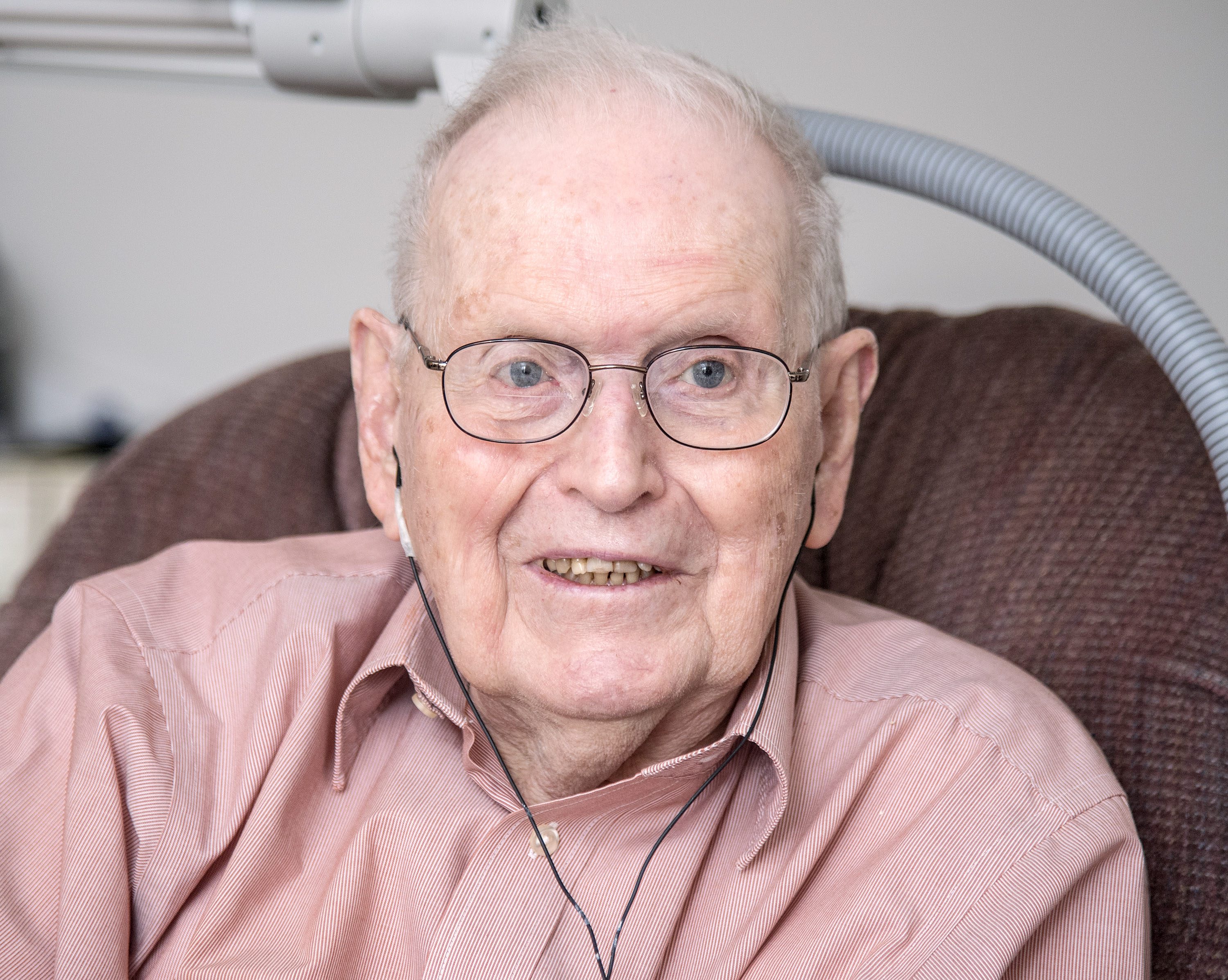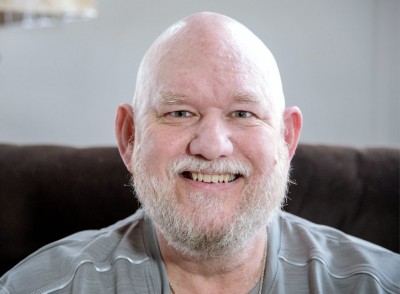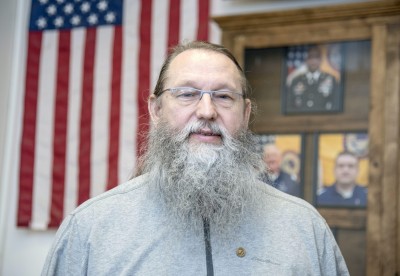Robert Wildemuth
By Paul Wood

Photo By Rick Danzl/The News-Gazette
SAVOY — Robert Wildemuth crossed a lot of rivers during World War II, quite literally. He was with Gen. George Patton when he crossed the Rhine into Germany, and moved across another river on a pontoon boat bridge, not an experience that he liked.
Wildemuth, 93, was born in Ulah, a small northern Illinois farm town.
But for Pearl Harbor, Wildemuth said, he’d probably have ended up being a farmer.
On Dec. 7, 1941, he was listening to a Chicago Bears game on the radio when they broke in with the news of the Japanese attack. The U.S. would join the Allies in two theaters of war.
After being drafted in August 1943, he put on some weight, a good thing. He said 117 pounds was the minimum weight for a soldier, and he was only two pounds above that.
After going to boot camp in Fort Benning, Ga., Wildemuth was sent to a specialized program at the University of Cincinnati. By the end, he weighed 160 pounds.
“We ate a lot of okra, that greasy stuff,” he said. “But I also ate a lot of ice cream.”
In the 14th Armored Division, it was decided that he’d drive trucks, since “all farmers drove trucks.”
“I knew how to drive a farm truck. That was different,” he said.
Oddly, he was also assigned to being a typist, despite having lost two fingertips to a lawn mower.
In August 1944, his unit shipped to France and landed in Marseille.
From Marseille, he traveled through eastern France before crossing into Germany near Worms and moving north to Wasserberg on the Inn River — and then to the edge of Austria.
In the last desperate months of the war in Europe, he trucked mail or Christmas presents in addition to munitions and water.
One time, he was close enough to German troops after a wrong turn that only 30 seconds saved him from being in a spot hit by artillery, he said.
“It wasn’t all fun,” he said. In Alsace, near the German border, rains soaked his tent.
The trucks used a lot of canvas, frequently stolen.
He had to drive all winter with no doors on the truck. At one point, he fixed a wheel in zero-degree weather.
Wildemuth took on a pet hedgehog — until a comrade heard something move and accidentally killed it throwing a shoe.
At the Rhine, he was “not too far away” from Patton at the time of the crossing. The flamboyant tank leader famously urinated in the river.
Near the end of the war in Europe, a couple of Germans wanted to surrender to him.
His unit was briefly stationed in a former insane asylum, he recalled, and some of the surviving patients tried to return.
He was ready to ship out for the Pacific War when two atomic bombs were dropped on Japan, effectively ending the war.
Like other World War II veterans, he said he approved of the bombings, in that they probably saved lives compared to a full-scale invasion of Japan.
In 1946, he came home.
After college and graduate school at Iowa State, where he met his future wife, Wildemuth worked all over the Midwest in the agriculture industry, including at Cargill, and finally he managed a Champaign office before retiring at 62.
He and his wife had four children.
Do you know a veteran who could share a story about military service? Contact Paul Wood at pwood@news-gazette.com.
Read more stories from local veterans:
 Steve Stanley
URBANA — Staff Sgt. Steve Stanley had top-secret clearance, and was assigned to a secure area from which tactical nuclea …
Steve Stanley
URBANA — Staff Sgt. Steve Stanley had top-secret clearance, and was assigned to a secure area from which tactical nuclea …
 Jeni Hunniecutt
URBANA — The National Guard took Jeni Hunniecutt from being the first college student in her family to six years of serv …
Jeni Hunniecutt
URBANA — The National Guard took Jeni Hunniecutt from being the first college student in her family to six years of serv …
 Stephen Ostwinkle
URBANA — The Army sent Sgt. First Class Stephen Ostwinkle to Bosnia in 2003, and he was scheduled to work with Croatian …
Stephen Ostwinkle
URBANA — The Army sent Sgt. First Class Stephen Ostwinkle to Bosnia in 2003, and he was scheduled to work with Croatian …